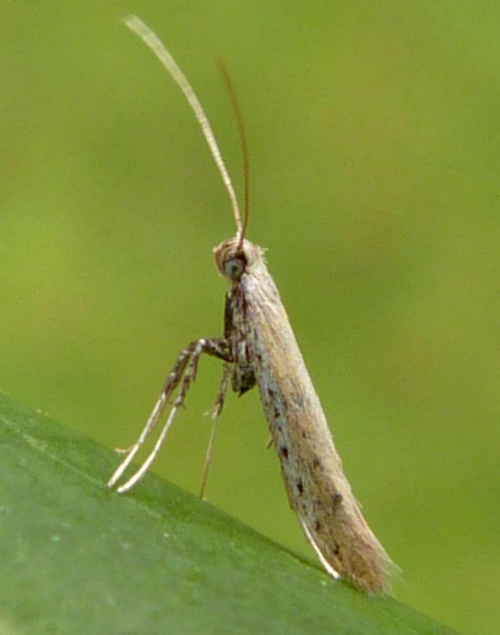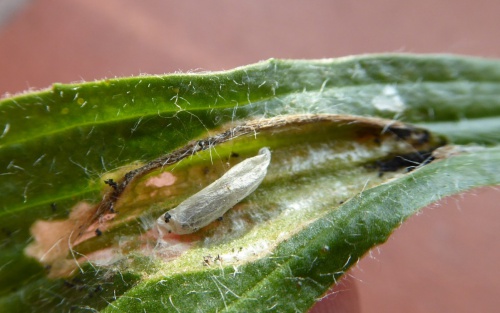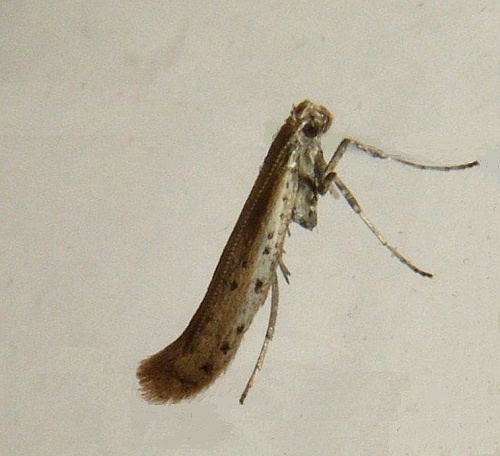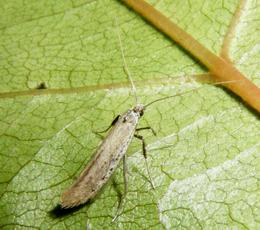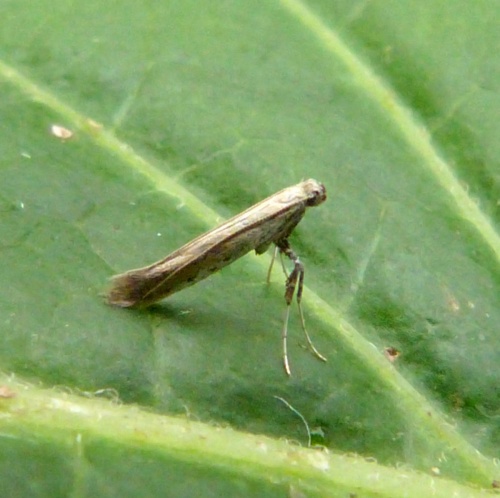Aspilapteryx tringipennella
Ribwort Slender
Wingspan 10-13 mm. A close relative of the genus Caloptilia, this species rests in a similar manner, with the forepart of the body raised on the front legs. The overall appearance is that the moth looks brown above fading to white below and there are rows of small dark spots. The larva mines the leaves of Ribwort Plantain, initialy in narrow gallery under the leaf, later in a blotch over the midrib on the upper side. This contracts, puckering the leaf and causing it to fold up. Pu[paton is in a coccon in the mine.
Several species of fly mine plantains, causing galleries
Photo of blotch mine. Note host species
Various.
There are two generations in the year, the adults being on the wing in May and again in August.
The second generation overwinters as a larva.
Widespread but with most records coming from the southern half of Britain. In the Butterfly Conservation’s Microlepidoptera Report 2011 this species was classified as common.
Uncommon in Leicestershire and Rutland. L&R Moth Group status = D (rare or rarely recorded)
Leicestershire & Rutland Map
Enter a town or village to see local records
MAP KEY:
Yellow squares = NBN records (all known data)
Coloured circles = NatureSpot records: 2025+ | 2020-2024 | pre-2020
UK Map
Species profile
- Common names
- Ribwort Slender
- Species group:
- Moths
- Kingdom:
- Animalia
- Order:
- Lepidoptera
- Family:
- Gracillariidae
- Records on NatureSpot:
- 79
- First record:
- 05/07/2003 (Skevington, Mark)
- Last record:
- 17/07/2025 (Cranston, Elspeth)
Total records by month
% of records within its species group
10km squares with records
The latest images and records displayed below include those awaiting verification checks so we cannot guarantee that every identification is correct. Once accepted, the record displays a green tick.
In the Latest Records section, click on the header to sort A-Z, and again to sort Z-A. Use the header boxes to filter the list.


